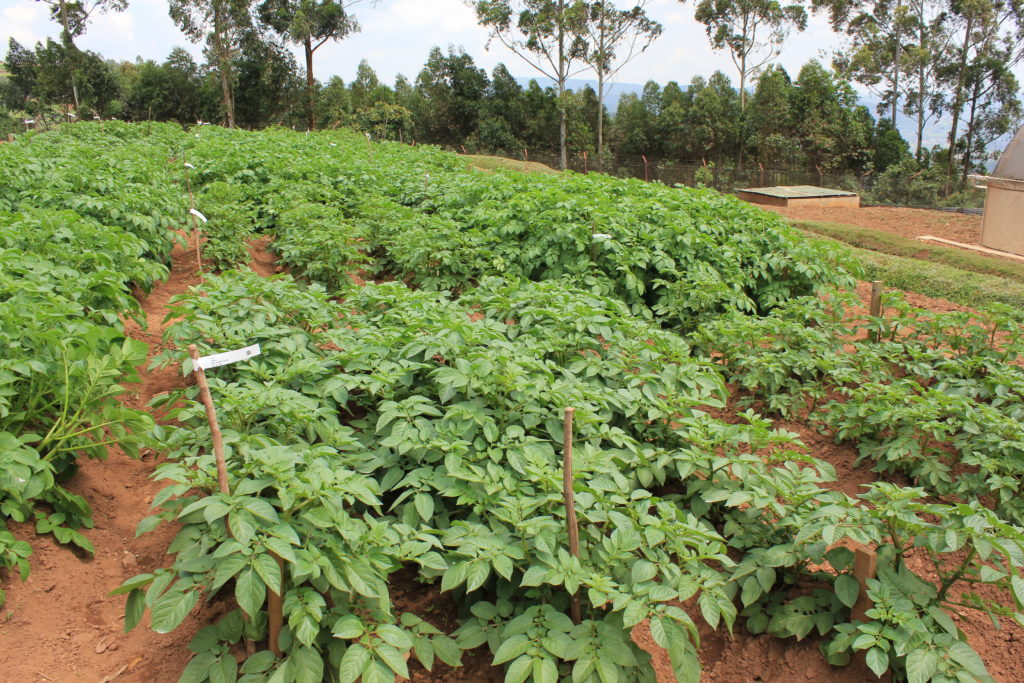Donor: USAID and 2Blades Foundation
Country/Region: Uganda/Sub-Saharan Africa
A New Weapon in the Late-Blight Battle
Three seasons’ worth of field trials in Uganda have revealed that a transgenic potato of the Victoria variety continues to exhibit late blight resistance previously seen only in growth chambers.
“It held perfectly, without a single lesion,” says Marc Ghislain, program leader at CIP.
The implications for farmers are powerful, he adds. Among them are greater crop yields, larger incomes, better health and increased food security. A benefit that’s less readily apparent: farmers who had previously spent as much as a quarter of their annual income on fungicide may now conserve that money for other uses.

“2Blades felt our project was a great example of developing a product from upstream research that will reach all the way down to the smallholders in Africa,” he adds. Farmers participating in the field trials “know Victoria well and were happy to see it” in its late blight-resistant form.
In the pipeline behind Victoria are other emerging late blight-resistant varieties farmers will need, including Shangi, and Tigoni, since “you don’t want to put all your eggs in one basket,” Ghislain says. Substantial additional work is needed on them, Ghislain says, but he suspects the varieties under development “will be very attractive across East Africa.”

Trials continue, including substantial equivalence tests to ensure that late blight resistance was the only trait added in the transgenic Victoria, but CIP has its eye on the future. “Three years from now, if all goes well, planting materials of the new late blight- resistant Victoria will be handed over to farmers,” says Ghislain.
Funding from two donors – USAID and, more recently, 2Blades Foundation – have advanced this vital work, Ghislain says. Staying out in front of the scourge of late blight is critically important for the global potato value chain.


